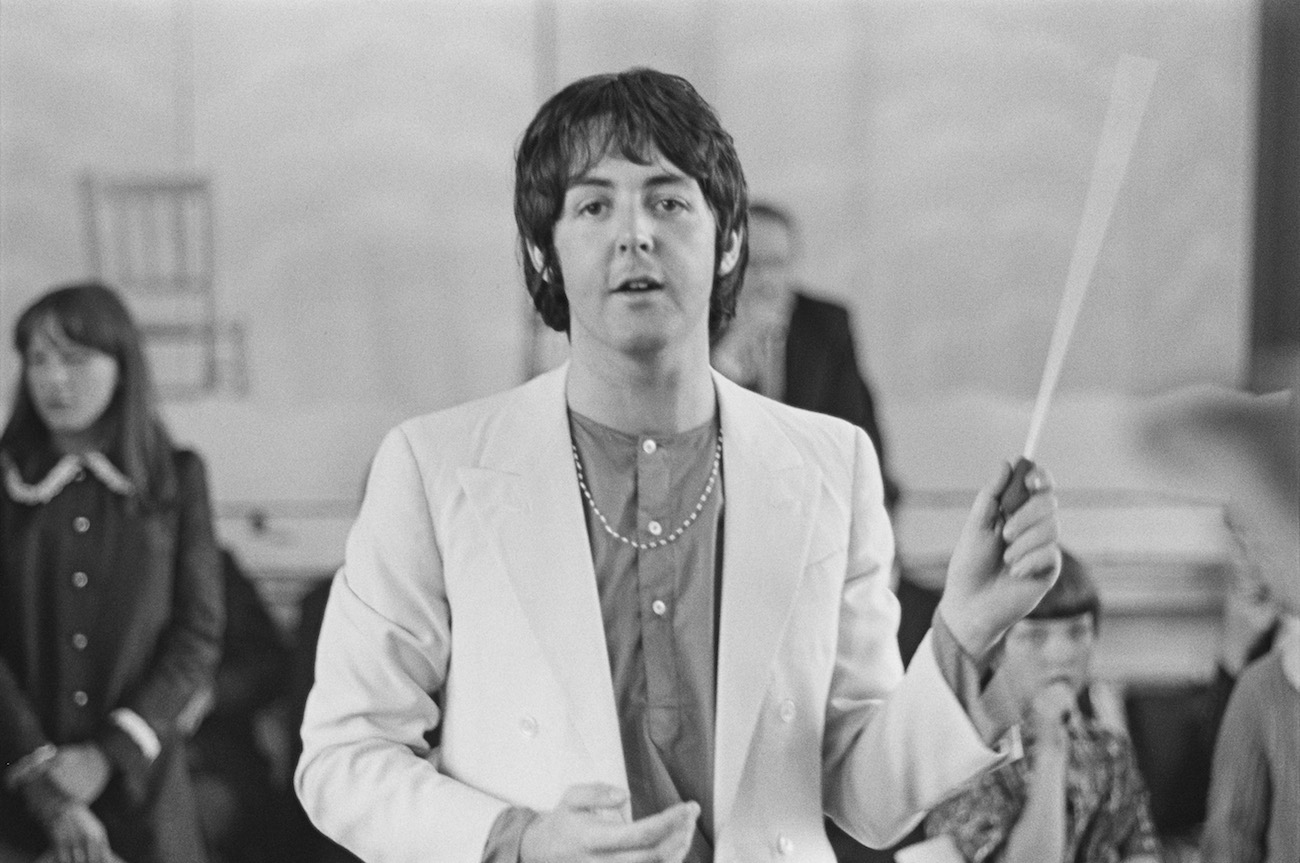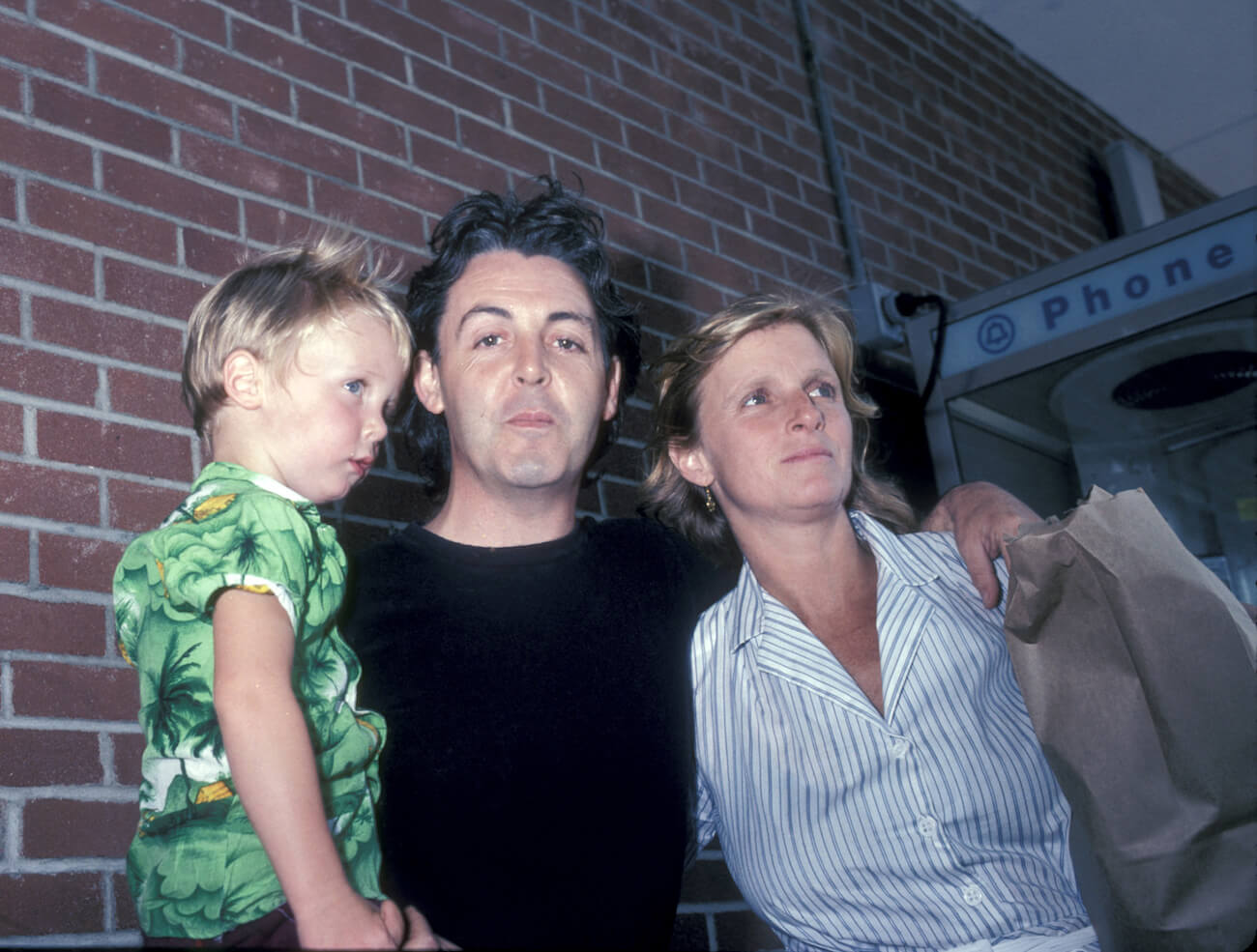
5 Songs That Paul McCartney Based on Literature
There are many songs that Paul McCartney based on things he read in literature. His parents instilled a love of knowledge and learning in him when he was a kid, and his English teacher at school fostered that love. Paul developed an admiration for writers like Lewis Carroll and Shakespeare. However, many authors and writers’ work ended up in Paul’s songs.

5. ‘The End’
In The Lyrics: 1956 to the Present, Paul spoke many times about his literary heroes, which included Dylan Thomas, Oscar Wilde, Allen Ginsberg, French symbolist writer Alfred Jarry, Eugene O’Neill, and Henrik Ibsen. However, a couple of his songs wouldn’t have shaped up the same way without the influence of Shakespeare.
Paul wrote that he’s “fascinated by the couplet as a form in poetry,” particularly how Shakespeare used the couplet to close out a scene or an entire play. For instance, in Macbeth, there’s: “Receive what cheer you may: The night is long that never finds the day.” Or “I go, and it is done; the bell invites me/ Hear it not, Duncan; for it is a knell/ That summons thee to heaven or to hell.”
It’s Shakespeare’s way of saying, “That’s it, folks.” Paul liked that and used it in The Beatles’ song “The End.” “And in the end the love you take/ Is equal to the love you make.”
4. ‘Golden Slumbers’
There are many Beatles songs that Paul based on literature, including Abbey Road‘s “Golden Slumbers.” While visiting his father, he came across some sheet music on the piano bench. He found an old Victorian song based on a poem by the Elizabethan dramatist Thomas Dekker.
In The Lyrics, Paul wrote that he sampled the music of the sheet music, almost stealing it. However, he didn’t know how the melody went because he couldn’t read the music. So, he made his own. There’s a childhood nursery rhyme aspect to the song that’s comforting.
3. ‘Helter Skelter’
Paul and John Lennon adored Lewis Carroll. He inspired many Beatles songs, including “Strawberry Fields,” “I Am the Walrus,” and surprisingly, “Helter Skelter.”
In the tune, Paul sings about a helter skelter, a conical fairground fixture with a slide around the outside. So, there was already a child-like aspect. Then, there are the tune’s verses that Paul based on the Mock Turtle’s song from Carroll’s Alice in Wonderland.
In The Lyrics, Paul included an excerpt: “‘Will you walk a little faster?’ said a whiting to a snail, ‘There’s a porpoise close behind us, and he’s treading on my tail. See how eagerly the lobsters and the turtles all advance! They are waiting on the shingle – will you come and join the dance? Will you, won’t you, will you, won’t you, will you join the dance? Will you, won’t you, will you, won’t you, won’t you join the dance?'”
2. ‘I Saw Her Standing There’
In The Lyrics, Paul wrote that he and John had heard all kinds of stuff as children that later inspired their songs. However, Paul’s English teacher, Alan Durband, showed him his literary favorites. Durband taught Paul about the rhyming couplet at the end of a Shakespeare sonnet.
Paul doesn’t know where “beyond compare” came from in “I Saw Her Standing There,” but it might have come from Shakespeare’s Sonnet 18: “Shall I compare thee to a summer’s day?” He may even have “been conscious, as a child, of the Irish song tradition – of a woman being described as ‘beyond compare.'”
Meanwhile, the rhythm “echoes” Stanley Holloway’s version of “The Lion and Albert,” a comic poem by Marriott Edgar. They have a similar meter.
1. ‘Let It Be’
Shakespeare also inspired Paul on The Beatles’ “Let It Be.” The song is based on a dream he had of his mother, Mary, who died when he was a teen. She told him everything would be OK and to “Let It Be.” However, thinking back, Paul thinks that phrase also came from the famous playwright.
In The Lyrics, Paul wrote that “Let it be” appears in Hamlet in the lines: “O, I could tell you — But let it be. Horatio, I am dead.” Paul thinks those lines subconsciously planted themselves in his brain, like everything else that Durband taught him.
There are many songs that Paul based on literature. Most of them became famous hits, and we have Paul’s curious mind and Alan Durband for that.


